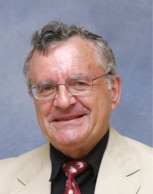McDonalds: The Price of Falling Asleep
By Shlomo Maital
McDonalds, the $87 b. global fast food chain, is in trouble. The world has changed and its senior management team missed the bus. The price for this is heavy. The newly appointed CEO Steve Easterbrook, an accountant, will have to deal with slumping sales and falling stock price. For years consumers have been opting for healthier food. McDonalds simply failed to meet or recognize the trend.
Here is how Bloomberg Businessweek describes McDonalds’ decline under its previous CEO: “The rocky two-and-a-half-year tenure of Don Thompson, Mr Easterbrook’s predecessor, was marked by flagging sales as the company’s key low-income customers continued to struggle in the wake of the financial crisis. It also coincided with the rise of upmarket burger chains such as Five Guys and Smashburger, and the explosive growth of fast-casual restaurants such as Chipotle. …. Last year, McDonald’s recorded its first annual decline in global same-store sales in a dozen years. The US, where McDonald’s is the target of criticism for its contribution to the obesity epidemic and wage inequality, is not its only tough market. Operations in Germany, Japan, Russia and China are also struggling. Consumers are no longer interested in food that is simply fast — they need to be convinced that it is, among other things, healthy, fresh and natural.”
McDonalds is an exceptionally arrogant organization, I am told. The global economic downturn began early in 2008; McDonalds could have seen that its customers would be pinched and less able to dine out. The trend toward healthy fresh fast food has been ongoing for years; Wendy’s and Subway have leveraged it with great success. People simply get tired of the same Big Mac.
To me, McDonalds proves a core dilemma in management. McDonalds has great operational discipline in its franchises; it has to, to survive. But the same discipline destroys creativity, flexibility and innovation. Somehow, McDonalds has to revive its agility, its ideation, without ruining its fabled discipline and cost management.
Let’s see if Steve Easterbrook, who played cricket in a British private school, will adopt a strategy that isn’t precisely “cricket”.



Leave a comment
Comments feed for this article